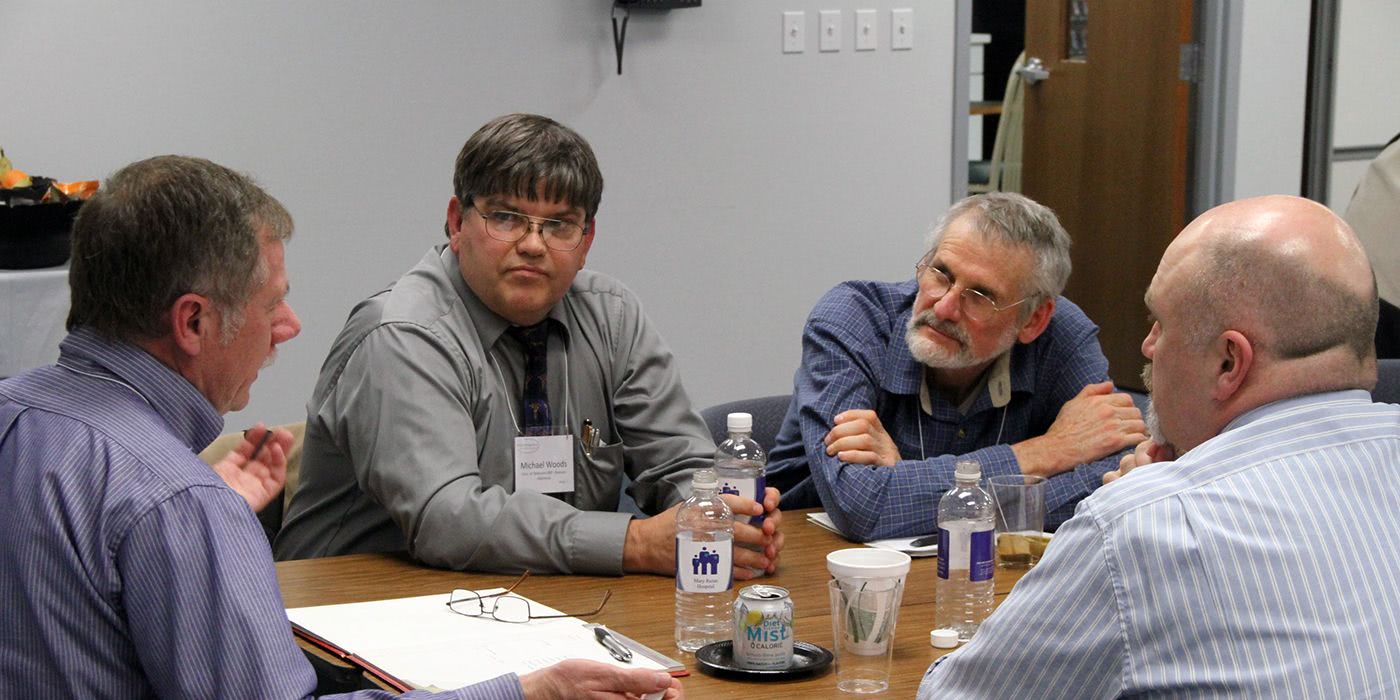The Setting and Evolution of The RTT Collaborative
2012 to present
The RTT* Collaborative, a non-profit founded in November 2012, emerged from the RTT Technical Assistance Program (RTT-TA), established in September of 2010 through a grant from HRSA’s Federal Office of Rural Health Policy. A strategy for creating a sustainable rural physician workforce, the RTT TA program was a consortium of organizations and individuals committed to sustaining rural training track residency programs (RTTs) in family medicine.
As a result of this grant, the first ever meeting of the nation’s RTT Program Directors, Site Directors, and directors of State Offices of Rural Health occurred in Columbus, Ohio, in February 2011. This meeting generated remarkable enthusiasm for transforming what had been a cottage industry in medical education into a thriving and organic network of support for the distributed efforts of these relatively autonomous programs. Over the next six years, the grant supported online and in person technical assistance, student recruitment, scholarships and interview stipends, and travel and meeting support for an annual meeting. The program dramatically increased the visibility of RTTs among students and others, increased the number of RTTs, and created an important evidence base for rural physician education through research. However, as planned, grant funding ended in August 2016.
Dr. Randall Longenecker (OH), Dr. David Schmitz (ID), and Dr. Ted Epperly (ID), leaders in the RTT-TA program, worked together to design the cooperative, establish a non-profit, recruit a founding Board, and launch the organization in November 2012. In 2022, Dr. Hana Hinkle assumed the role of Executive Director and Dr. Darin Bell became Associate Director. Dr. Longenecker became Senior Advisor and Consultant, and Dawn Mollica served as Administrative Director.
Since 2010, conversations with multiple stakeholder groups have pointed to the need for collaboration among all interested parties in addressing a growing rural physician workforce crisis in family medicine, general surgery, and other generalist specialties in primary care. Evidence now demonstrates that physician education often substantially contributes to an infrastructure for education and training in other health professions. Establishing a non-profit entity such as The RTT Collaborative to refine, further expand, and carry on this critical work is essential to sustaining rural health professions education, a quality rural health professions workforce, and the health of rural communities.
Annual meetings planned by The RTT Collaborative since 2014 chronicle the evolution of this group. From an “RTT Conclave” in Athens, OH, sponsored in part by the RTT-TA program and attended by 73 individuals, the organization has continued to grow. In 2022, the Annual Meeting has 201 registrants from almost every State. From five (5) active sponsors in AY2014 (Wisconsin Collaborative for Rural Graduate Medical Education, Ohio University Heritage College of Osteopathic Medicine, Family Medicine Residency of Idaho, Cahaba Medical Care Foundation in Alabama, and the Colorado Institute of Family Medicine) the number of participating programs has reached 72 in AY2022, including the nation’s first Rural Track Program in General Surgery (Logan, WV). For a current map visit our participating program page.
As a non-profit cooperative and a coalition of rural medical educators, medical schools with rural tracks, rural residency programs of all types, rural researchers, and policymakers, The RTT Collaborative functions as a nexus for those interested in building and sustaining health professions education in rural places. What we hope to become for the nation is already happening in several states, with Wisconsin and Colorado the exemplars in this regard. We intend to become a network of such networks. From this base in physician education and going forward in a true interprofessional spirit, the Collaborative intends to expand in future years to address all types of rural health professions education and training and invites other professionals to come to our meetings and join our movement.
Please read over our Annual Report 2020-2021-Annual-Report-Final.pdf (1.37 MB pdf) . For further history, read, “Building a community of practice in rural medical education: growing our own together” This article examines the history of rural training track residency programs in the United States over the past 30 years and reveals the significance of a community of practice for ongoing support and development of these programs.
Updated April 20, 2022, by Randall Longenecker MD

